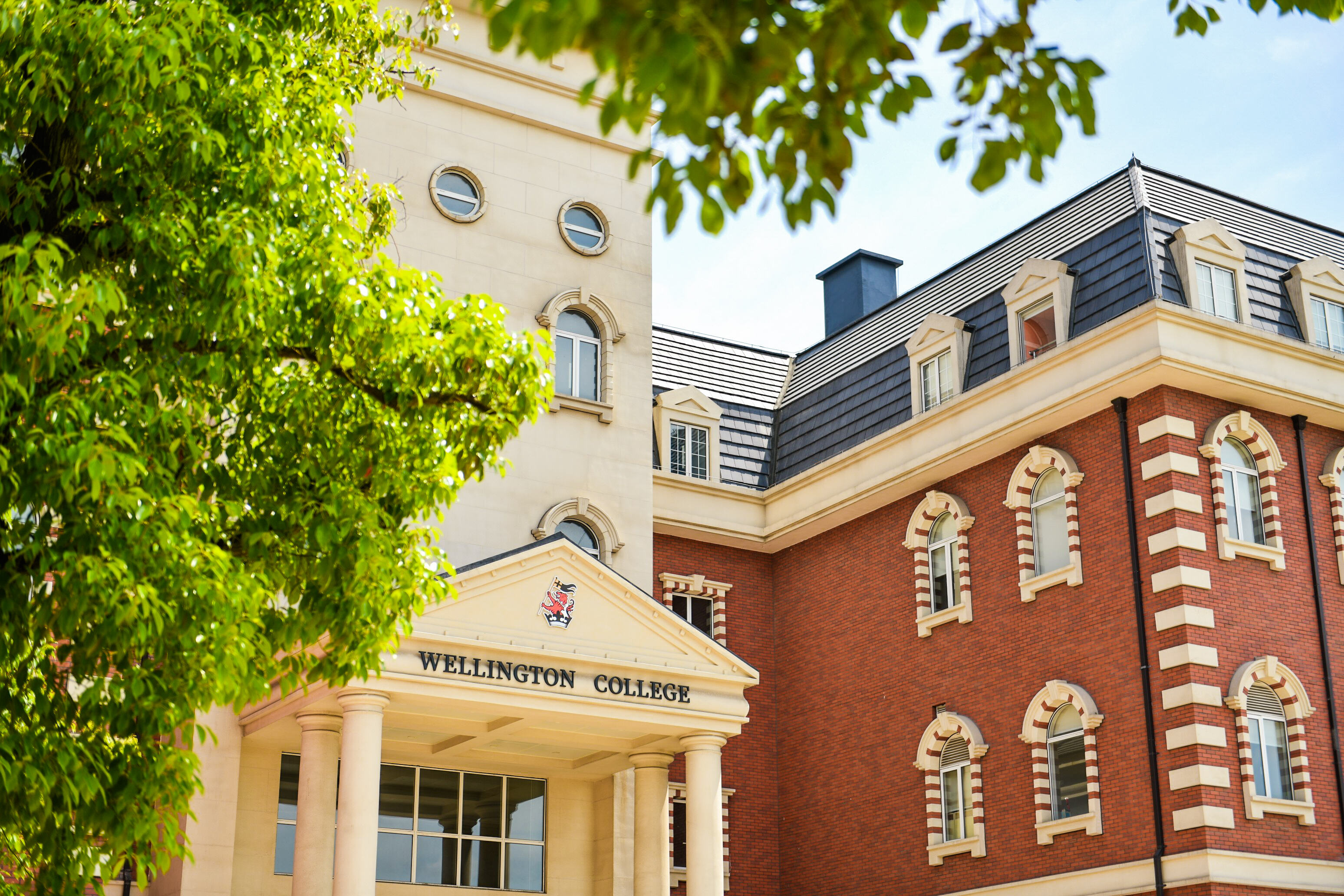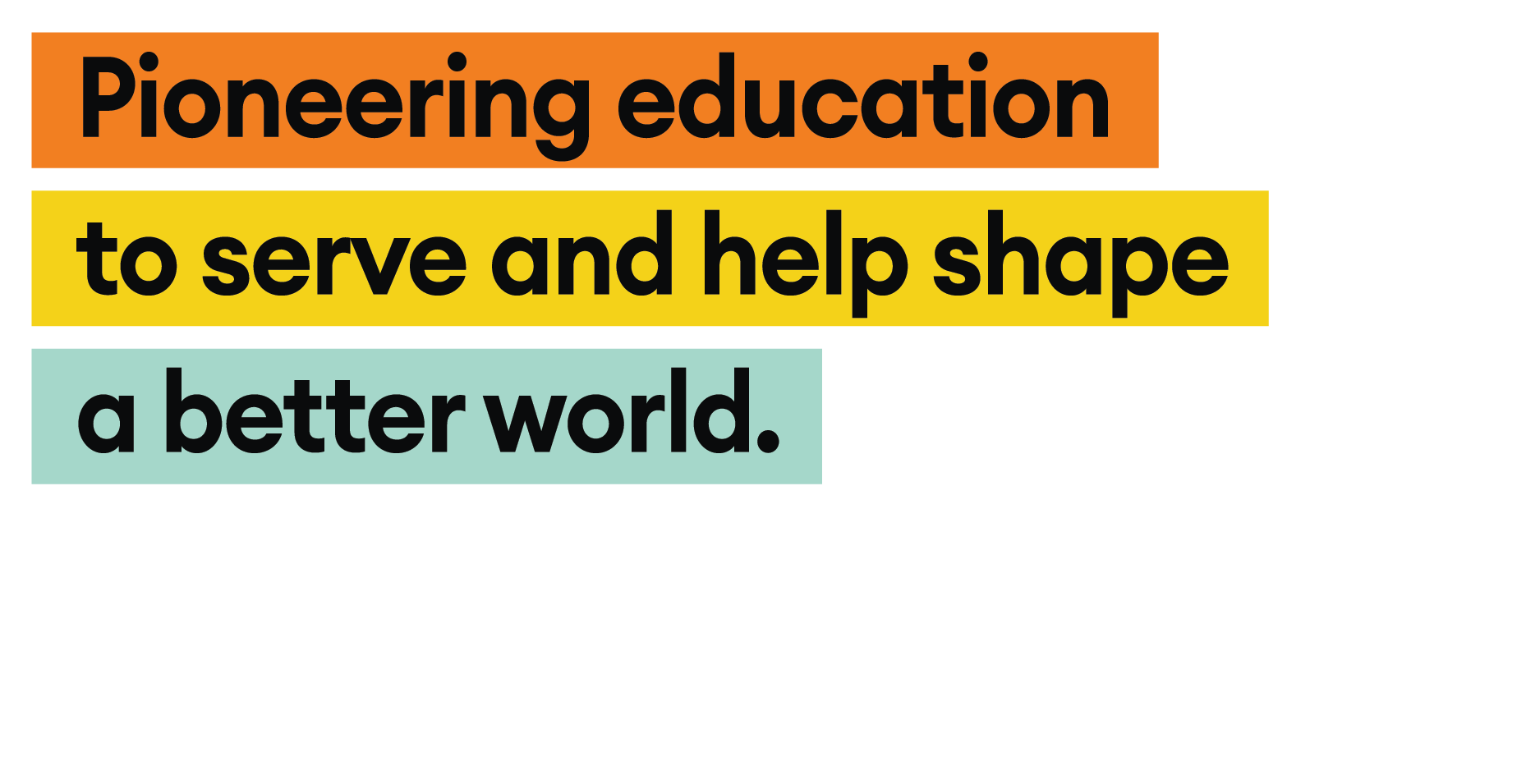Unlocking Potential: Shrek’s Path at WCIH
At Wellington College International Hangzhou, we pride ourselves on nurturing the potential of every pupil, regardless of their starting point. Our holistic approach and unwavering commitment to academic excellence and personal development have consistently enabled our pupils to thrive. Today, we are delighted to share the inspiring journey of one of our outstanding pupils, Shrek.
When Shrek first joined Wellington College International Hangzhou, his proficiency in English was quite limited. The transition was challenging, but Shrek tackled it with unwavering determination and resilience. In the initial stages, he struggled to keep up with the language demands of his courses. However, through the unwavering support of our dedicated educators, personalized learning strategies, and Shrek's own hard work, his progress has been nothing short of remarkable.
This year marks a significant milestone in Shrek’s educational journey—he received an offer to attend the prestigious Harvard Summer School. This achievement is a testament not only to Shrek's grit and dedication but also to the nurturing and academically rigorous environment that Wellington College International Hangzhou continuously fosters. Shrek’s story is a vivid illustration of how perseverance, coupled with the right support system, can lead to extraordinary accomplishments. In this article, we delve into an insightful interview with Shrek, exploring his transformative experience and the journey that led him to this extraordinary opportunity.
Q
Why did you transfer to WCIH at that time? Do you think the learning experience here is different?
A
My father and I had carefully planned my transfer to WCIH because we believed that the school would provide me with diverse perspectives and opportunities for personal growth. Joining an international school has allowed me to develop a global outlook, where I can adapt to and embrace new ideas and experiences that might not have been available to me elsewhere.
There is a notable difference between the education system here and that of the public schools in China. In my previous school, the focus on English was minimal, and we primarily communicated in Chinese, except during English classes. At WCIH, however, we are constantly engaged in a bilingual environment. We get the opportunity to use both English and Chinese daily, and we are encouraged to speak English not only in our lessons but also during classroom discussions and around the campus. This immersion has significantly accelerated my English language learning, allowing me to practice and improve my skills consistently by conversing with peers who are proficient in English.
One of the most remarkable differences is the stress-free approach to acquiring new knowledge. The supportive community here ensures that I never feel overwhelmed. Whenever I feel anxious or stressed, there is always someone available to talk to, whether it be friends, teachers, or other staff members, all of whom are dedicated to providing the best possible support.
For instance, Miss Richards has been a tremendous help to me, particularly during exam periods when my stress levels are high. We share a strong rapport, and I often seek her guidance, which has been instrumental in alleviating my anxiety and fostering a positive attitude towards learning. Her support and encouragement have allowed me to navigate the challenges more confidently and focus on my academic and personal development.
Q
Can you describe your earliest challenges with the English language and how you felt facing them?
A
English is not my first language, and embarking on the journey to learn a new language was both daunting and challenging. During the first year at WCIH, I could barely speak, read, or write in English, which profoundly affected my ability to socialize, learn, and express myself. This initial phase was quite discouraging as the language barrier isolated me from fully engaging with mypeers and the curriculum.
However, this difficulty also served as a transformative force, compelling me to immerse myself in the language. I quickly realized that integrating English into my daily life was essential, as it was the primary medium of communication that I needed to understand and be understood by others.
Being constantly surrounded by spoken English was immensely beneficial for my language acquisition. The immersive environment acted almost like a crash course in English, and soon enough, I began to improve my comprehension and speaking skills. Additionally, the unwavering support from my teachers played a crucial role in my progress. They provided not only academic assistance but also emotional encouragement, constantly motivating me to persevere despite the challenges.
The supportive environment fostered by WCIH ensured that I never felt alone in my struggle. Teachers were always approachable and ready to offer guidance, whether through extra tutoring sessions, one-on-one conversations, or simply by creating a classroom atmosphere that encouraged active participation and practice. Their patience and encouragement helped build my confidence, allowing me to gradually overcome my initial fears and frustrations.
Looking back, those early challenges with the English language became pivotal learning experiences. They taught me resilience, the importance of consistent effort, and the value of a supportive community. With every struggle I faced, I was forging a stronger foundation for my future academic and personal achievements.
Q
Could you share some of the most effective strategies or methods you used to improve your English skills?
A
Improvingmy English skills required a combination of various strategies that I found both effective and engaging. One of the primary methods I used was creating flashcards to learn new vocabulary. When preparing for standardized tests like the TOEFL and SSAT, I needed to study a vast number of words daily. Flashcards were a fantastic tool to aid in this memorization process. By turning vocabulary learning into a game, especially when played with friends, the monotony of rote memorization was transformed into a fun and interactive activity. This method made it easier to retain the new words and integrate them into my daily usage without feeling overwhelmed or bored.
In addition to using flashcards, I surrounded myself with peers who, like me, did not have English as their first language. We made it a habit to converse in English as much as possible. This practice did wonders for my language development as it forced me to think and communicate in English constantly. Engaging in everyday conversations helped improve not just my vocabulary, but also my pronunciation, fluency, and overall confidence in using the language. It was an excellent way for us all to improve together, offering each other support and correcting mistakes in a friendly, low-pressure environment.
A common piece of advice I often give to others is to try memorizing English words by understanding their meanings in English, rather than translating from Chinese. This approach helps in developing a more intuitive grasp of the language, making it easier to think and speak directly in English without the intermediate step of translation. Over time, this method reduces the likelihood of hesitation and errors that often occur when one thinks in their native language before speaking in English.
Additionally, immersing oneself in an English-speaking environment as much as possible is crucial. This can include consuming English media such as books, movies, podcasts, and news. By engaging with content that interests you, the learning process becomes more enjoyable and less of a chore. The more you expose yourself to the language in different contexts, the more natural it becomes.
I encourage everyone to embrace mistakes as part of the learning journey. Language acquisition is a gradual process, and making errors is a sign of progress. By staying committed to practicing regularly and seeking support from teachers, peers, and various learning resources, you can significantly improve your English skills.
Q
Receiving an offer from Harvard Summer School is quite an achievement. Can you share with us the application process? What do you think made your application stand out?
A
Applying for schools in the United States involves a multifaceted process that differs significantly from the application procedures in the UK. American institutions like Harvard Summer School not only require your academic report, GPA, and standardized test scores, but they also place a strong emphasis on your community service record and extracurricular involvement. In addition to these requirements, I had to write numerous application essays, totaling several thousand words, to articulate my interest in attending Harvard Summer School and to explain how this opportunity aligned with my academic and personal aspirations.
The process was undoubtedly rigorous, and the competition was fierce, with a vast pool of highly capable applicants vying for limited spots. However, I believe several factors contributed to making my application stand out. One of the key elements was my demonstrated leadership skills. Throughout my time at Wellington College International Hangzhou, I actively took initiative and assumed leadership roles in various extracurricular activities. For instance, I founded the Olympic Maths Club, the English Literature Club, and the Wellington Running Club. Each of these clubs provided students with unique opportunities to explore their interests and develop new skills, fostering a sense of community and collaboration.
In addition to founding these clubs, I successfully organized a cricket festival during the last academic year. This event was a significant undertaking that required meticulous planning, coordination, and the ability to bring together diverse groups of people. Through these activities, I not only showcased my organizational skills and commitment to my interests but also demonstrated my ability to lead, inspire, and create positive impacts within my school community.
Moreover, I made it a point to highlight my passion for the fields that interest me deeply. Whether it was through my dedication to enhancing mathematical skills, promoting literature appreciation, or encouraging physical fitness and teamwork through running and cricket, I sought to convey my genuine enthusiasm and proactive engagement in various areas of interest. I believe that this passion, coupled with my leadership experiences, painted a comprehensive picture of who I am as a pupil and as an individual.
Ultimately, my application was strengthened by the combination of academic excellence, a robust record of community service, and a proven track record of leadership and initiative. These elements together reflected my readiness to embrace the challenges and opportunities that Harvard Summer School offers, making me a compelling candidate for this prestigious program.
Q
What advice would you give to other pupils who are struggling with learning English?
A
Learning a new language, particularly one as globally significant as English, can indeedbe challenging, but there are several effective strategies that can help ease the process and make it more enjoyable. One of the practices I find particularly beneficial is the 20-minute reading time that we have every morning at Wellington College International Hangzhou. During this time, we readbooks, news, and articles of our choice.
Finding a book that truly interests you can be a game-changer in improving your reading skills. When you are engrossed in a subject you are passionate about, the act of reading transitions from being a task to an enjoyable activity. Immersing yourself in these materials can significantly enhance your comprehension and vocabulary, making the learning process much more effective and enjoyable.
Most importantly, do not be afraid to use English in your daily interactions. It’s natural to feel apprehensive or self-conscious, especially when you make mistakes. However, it's crucial to remind yourself that being fluent in another language is already a remarkable achievement, and every bit of effort you put into learning English will pay off greatly in the future.
My key piece of advice is to trust in yourself and embrace your unique journey. Accepting your differences and acknowledging that everyone has their own learning pace is an integral part of the process. Confidence in your abilities and perseverance will help you overcome the initial hurdles and improve steadily.
Finally, I would like to extend my best wishes to all pupils at WCCH. I hope you all have an excellent experience learning English. Remember, with dedication and the right mindset, you can achieve remarkable progress.
Related Articles
_1765959575834.png?x-oss-process=image/interlace,1/resize,m_lfit,w_1200/quality,q_90/format,webp)
_1744698935419.png?x-oss-process=image/interlace,1/resize,m_lfit,w_1200/quality,q_90/format,webp)
















